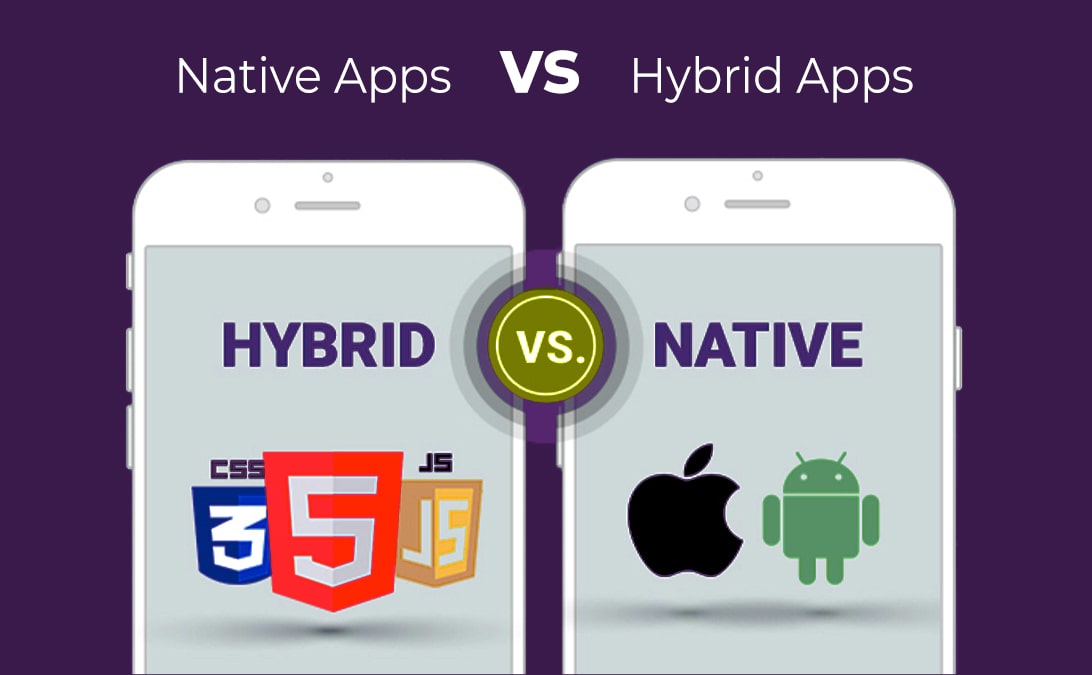
Native vs Hybrid Apps: A Comparison
4 October 2022
Most businesses, in any industry, now understand that it is important that an app reflects customer or client behaviour and satisfies their needs.
Knowing the difference between hybrid and native apps is important before embarking on an app development project. Hybrid apps are better for some digital brands and native apps are the right choice for others.
This guide will help with that decision making process so that any online store can best plan their app development strategy and approach.
Why are Native and Hybrid Apps so Important?
For over ten years, applications, whether native or hybrid or web apps, have dramatically increased in popularity to the extent that most people across the World now use apps via their mobile devices (whether they are aware of them as apps or not).
Clearly for certain eCommerce businesses or web based brands, creating an app is not debatable. Online stores, health services and education providers are some of the organisations where an app can transform the customer service provided.
Ultimately, the cost of app development, the timeline of a business, the behaviour of its customers, the untapped need or frustration the app would satisfy, and the expected return on investment will determine the need for an app.
The Difference Between Native Apps & Hybrid Apps
Before we compare the differences between native apps and hybrid apps, lets look at the definition of each.
What are Native Apps?
Native apps are any applications written to work on a specific device platform. The two main mobile platform operating systems are iOS (Apple) and Android (Google). Good examples of native apps include Spotify and WhatsApp.
What are Hybrid Apps?
A hybrid app is a web app that has been placed in a native app shell. Once they are downloaded from an app store and installed locally, the shell is able to connect to whatever capabilities the mobile platform provides through a browser that’s embedded in the app. A good example of a hybrid app is Instagram or Facebook.
Pros and Cons of Native Apps
Benefits of Native Apps
There are plenty of benefits of choosing a native app for your native mobile app development project.
- First off, native apps tend to be faster since they are developed specifically for the intended platform.
- They work offline so no internet connection is required to run most parts of them. So their basic features can still be accessed on the likes of a plane or underground.
- Native apps look and feel like the operating system they are built for so can feel more familiar and, therefore easier, to use.
- As native code is faster than HTML or JavaScript, graphic-heavy, high definition or animated applications usually perform better as native apps.
- Native software development kits can access device features straight out of the box without any complex app development being required.
- Native app development is simpler as they aren’t dependent on open source libraries and platforms.
- Developing for a single platform like iOS, rather than cross platform, can mean that resources are focussed on creating the best experience for particular users. Then, once the app is ready, web apps or hybrid apps can be built by recreating features developed for a native app.
Drawbacks of Native Apps
Native apps do have some disadvantages that should be considered when deciding on the right course of app development for your business.
- Trying to release the same features on different platforms can be difficult because native apps each have different codebases.
- The cost of upkeep of the app can be higher as different skill sets are needed to build, maintain, and support the same application on of the platforms.
- App development, including planning separate release cycles and updates for each platform, can lead to more time, and ultimately cost for native apps.
- The process for users to use native apps is much more cumbersome. Users need to open the App Store and find the app, agree to terms and conditions and then download it. This process takes time which some users will not have the patience for and so will give up.
- Generally, native apps are much less flexible than hybrid apps.
Pros and Cons of Hybrid Apps
Benefits of Hybrid Apps
The advantages of hybrid apps are worth considering when embarking on app development.
- One codebase for all platforms means developers only need to write once and then can run the code whenever they need to.
- There is no need to worry that hybrid apps won’t be able to deliver the same performance as native apps. They absolutely can.
- Hybrid apps are built to accommodate all versions of the same app, saving app development time and money.
- Hybrid apps offer a consistent user experience across different devices, browsers and operating systems. Perfect for app development efficiency but potentially a problem when it comes to recognising that users may behave differently according to the environment they are in.
- As web technologies are needed to develop hybrid apps, the same development resources can be used to build hybrid apps across all platforms, however different they may be.
- Hybrid apps, like native iOS and Android apps, can be accessed whilst offline particularly beneficial if your customers don’t have great mobile data packages.
- Hybrid apps can run on all browsers just like websites due to Progressive Web Application (PWA) technologies.
Drawbacks of Hybrid Apps
Just like native apps, hybrid app development has some disadvantages to be aware of.
- Hybrid apps tend to lag because they are run on many different operating systems which can create interface complications.
- The look and feel of hybrid apps across different operating systems can risk losing users. Thorough testing of the user experience of hybrid apps across multiple platforms is necessary.
- Performance based apps such as 3D games and HD, graphic-led experiences operate better within a native app.
- Hybrid apps rely on native plugins to be able to access all native device features but if a new feature is not available via a plugin, the hybrid app will suffer. The development process can then be more complicated.
- Hybrid apps are dependent on various different third party libraries and frameworks which need to be in sync with the most recent platform version releases and changes.
Native vs Hybrid Apps: Key Aspects Compared
App Development Time & Money
Hybrid apps are more cost effective to develop and need less development time to build. A hybrid app is also easier to maintain and support, as there is a single code base compared with a native app that is written with a specific platform in mind. Winner: Hybrid app.
Best User Experience
Being specifically designed for a particular operating system, iOS or Android, a native app offers a better user experience and is mindful of the screen size and hardware capabilities. A hybrid app, on the other hand, is built on one codebase for all platforms and so the user experience may not be as familiar for each visitor. Winner: Native app.
Free or Paid Apps
If the intended app is going to be available for free, then it can be created as a hybrid app. Paid for apps need to be launched on app stores (Apple and Google Play) and consumers expect to get a good user experience, and so a native app build is recommended. Winner: hybrid app and native app.
Cross Platform
Platform consideration will be a reflection of consumer preference but these days all main platforms, Android, iOS, and Windows, are extremely popular and most business would need to provide an app that works well on them all. Creating a web or hybrid app with one codebase therefore will save time to develop and publish across multiple platforms. Compare this option to a native app which requires JavaScript for Android and Objective C for ioS. Winner: Hybrid app.
Native App vs Hybrid Apps: Key Differences
So what’s the main differences between native vs hybrid? Essentially, hybrid apps are developed across all platforms, while native apps are developed for specific operating systems. The point to consider is whether your business needs a specific app for a specific smartphone operating system, or an app that is consistent across all platforms.
Native Apps Summary
Native apps are faster, mirror the features of a particular device, and can be built with the needs of a certain profile of user in mind. The downside is there is more development required for native apps and as a result more time and money invested.
Hybrid Apps Summary
Hybrid apps are less development intensive and can be cheaper to build but the drawbacks are lagging and discrepancies between devices and operating systems. Sophisticated business apps can suffer with these disadvantages.
Native vs Hybrid: Next Steps
Think about your business vision and aims for an app and then discuss with an experienced app development agency. chilliapple are masters of their craft and can help you to make the right decision to suit your brand and products. It is worth spending time to compare native vs hybrid applications, and even web apps, and particularly whether the disadvantages of each type of app can be overcome or accepted. Our web and mobile app development team has worked with all sizes of businesses and across many industries. We know whether, for example, native apps are better for you and the pitfalls of each. We’d loved to discuss your next mobile app development project soon.




